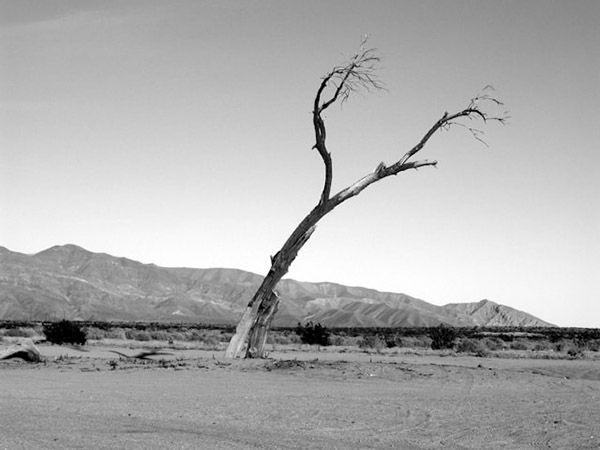Are You Discerning from Scarcity or Abundance?
- KERRI CHRISTOPHER
How a Christian worldview informs our approach.
 Photo by Matt Artz on Unsplash.
Photo by Matt Artz on Unsplash.
If you've ever spent time in the life-coaching, kind of "woo"-y world, you may have heard this question: Are you operating with an "abundance mindset" or a "scarcity mindset"? And usually, this question is followed by some comment about the universe giving us what we need.
But the trouble with this approach is that it tends to mis-assign God's action to "the universe" or even to our own will power: if we just think of abundance enough, or "manifest" it, it will come to us.
That's not really true. But it does have a tiny grain of truth in it, which I want to explore because I think it gets to the heart of how we approach discernment and why sometimes it's so difficult.
"Abundance Mindset" vs. "Scarcity Mindset"
Put simply, a "scarcity mindset" is an approach to the world that assumes that there is not enough to go around. Resources, whether they be material (like food) or spiritual (like friendship) are in short supply, which means that not everyone will have some. This in turn means we need to compete and plan for control and hoard. It's an interior posture of crouching and clutching.
An "abundance mindset," on the other hand, is an approach to the world that assumes there is enough to go around. There is enough material and spiritual supply for everyone to have what they need. This leads to collaboration and peaceful waiting and generosity. It's an interior posture of uprightness and open hands.
Now, here's where things get tricky: which one is actually true?
The woo-y approach wants to claim that if we all just adopted an abundance mindset, it would be true. There would be enough.
And that's not totally crazy, is it? Imagine if everyone in the world used only what they needed and gave the rest to those who needed it: that would be a pretty fantastic world.
But it's not our world. Sadly, our world is a fallen world, which means that people are selfish and dictators starve their people and natural disasters yield poor harvests and each of us has some areas of life where we don't want to let go of our grasp because we are desperately afraid that if we do, there just won't be enough.
Because sometimes? In this fallen world, there isn't actually enough. People go hungry and friendless and jobless and scarcity is real.
So what should we do? Should we just operate from a scarcity mindset? Should we start competing and trying to control and hoarding what we do have?
I don't think so. I think we should have an "abundance mindset," despite the very real scarcity of a fallen world, not because "there's enough if we just believe it," but because God is enough.
This is the heart of the Christian message: despite the chaos and havoc that our sin has wreaked in this world, Jesus is bigger. He's big enough to take on our sin, our weakness, our scarcity, and to give us Himself instead. This is the Incarnation. This is the Easter story: just when everyone felt that they'd reached the end, that their hopes were destroyed, that there was nothing left, the emptiness of the tomb promised more, not less.
Our God is Everything.
 Photo by Tienko Dima on Unsplash.
Photo by Tienko Dima on Unsplash.
Why Choose an Abundance Mindset?
So that's the first reason to adopt an "abundance mindset": the knowledge that Jesus is enough. This is no small thing. It's hard to live like He is enough in the face of scarcity: not enough cures for cancer, not enough friends, not enough jobs, not enough children. Not enough—maybe not any—of the thing(s) you so desperately desire.
Saying "Jesus is enough" isn't about putting a band-aid on the pain and blithely moving on with the assumption that everything is going to be peachy-keen. It's about choosing to believe that his words are true ("I am the Way and the Truth and the Life"), and offering our pain in solidarity and intimacy with Him ("carrying in our bodies the death of Christ"). And sometimes that intimacy involves real conversation about suffering, as Jesus himself had with the Father in the garden of Gethsemane.
The other reason to adopt an "abundance mindset" flows from this closeness to Jesus. Our Lord knew what was coming—the betrayal, the torture, the ignominious death. And yet He moved through the world with open hands—loving and forgiving and healing, because He also knew about the Resurrection.
What if we chose a posture of peaceful openness despite the suffering of scarcity? What if we chose to act like we believe that God will provide for us, even if it isn't in the ways that we want? What if we chose to be generous even if it meant that we might go without, because we know that God is with us, harvest or no harvest? What if adopting an "abundance mindset" meant living not with a false prosperity gospel, but with deep trust in a Divine friend?
I think it would radically change our discernment.
What Does an Abundance Mindset Look Like?
A few years ago, we were looking into the possibility of purchasing a property with friends. It was a really unique place at a decent price, but as we talked it through it just didn't seem like the right time, for a variety of reasons. As I texted my friend about it, I suggested taking an "abundance mindset" approach.
"But what does that actually mean?" she asked. "Believing that in 5 years another unique property exactly like this will come on the market at a decent price?"
It was a valid question—does "abundance mindset" entail believing that God will offer us the same opportunity at a better time? I don't think that's it.
"I think it means believing that God will give us what we need when we need it," I replied, "whether it's this property, one like it, or something else altogether."
What if, when we set out on the path of discernment, or really any decision-making, we approached it with a deep trust that God will meet all our needs, ultimately, not with things but with Himself?
It would mean that we could stop worrying, stop grasping, stop acting out of fear, and stop trying to control everything.
It would mean that our sorrows have meaning, united to His.
It would mean that instead of clutching at straws, we would stand, palms open, ready to receive. Ready to give.
This isn't an excuse to quit doing our part, but it's a reason to pause and discern where our actions are coming from. Are we doing something because we don't trust God? Are we doing it because we're afraid it may get stolen if we don't? Are we doing it because we want to have more than we actually need?
The same action can come from different places. We might pursue a new job in order to better develop our God-given talents; or we might do it for a more prestigious title and more human respect. We might seek out new medical treatments because we want to be healthy and present for our family; or we might do it because we are terrified of dying. We might join a dating site because we feel called to marriage; or we might do it because we're worried about being alone.
And often these motivations and mindsets are competing in us.
Putting it into Practice
Good discernment isn't just about making good decisions: it's also about making those decisions from a good place—a place of trust in God.
Is there an area of life where you're acting out of a scarcity mindset? What would happen if you switched from a mindset of scarcity to one of abundance? Would you change your actions? Your disposition? Both?
Maybe it's time to start praying about what's under the surface. Find a quiet moment and imagine stepping into the presence of God, holding the thing that you care about. What posture are you in? What do you think He's asking you about it? What do you want to tell Him? Can you imagine placing that thing you want at His feet, entrusting it to Him, and walking away in confidence and peace?
"God so loved the world that he gave his only Son." What are we willing to give Him?
 This is J. Fraser Field, Founder of CERC. I hope you appreciated this piece. We curate these articles especially for believers like you.
This is J. Fraser Field, Founder of CERC. I hope you appreciated this piece. We curate these articles especially for believers like you.
Please show your appreciation by making a $3 donation. CERC is entirely reader supported.

Acknowledgement
 Kerri Christopher. "Are You Discerning from Scarcity or Abundance?" Cultivating Clarity (March 27, 2024).
Kerri Christopher. "Are You Discerning from Scarcity or Abundance?" Cultivating Clarity (March 27, 2024).
Reprinted with permission from the author.
The Author
Kerri Christopher (MA, STL) has taught theology at universities in the US and UK. In 2018 she founded Clarity Life Consulting to help people learn to discern so they can live with purpose and peace. Her clients gain the tools of good decision making, discover their priorities, and make practical plans to move forward in the context of living a Christian life. She regularly offers free resources via her newsletter, Cultivating Clarity, for those who want to cultivate the spiritual and practical art of (daily) discernment. Her background in theology serves as the foundation for her practical work.
Copyright © 2024 Kerri Christopher

